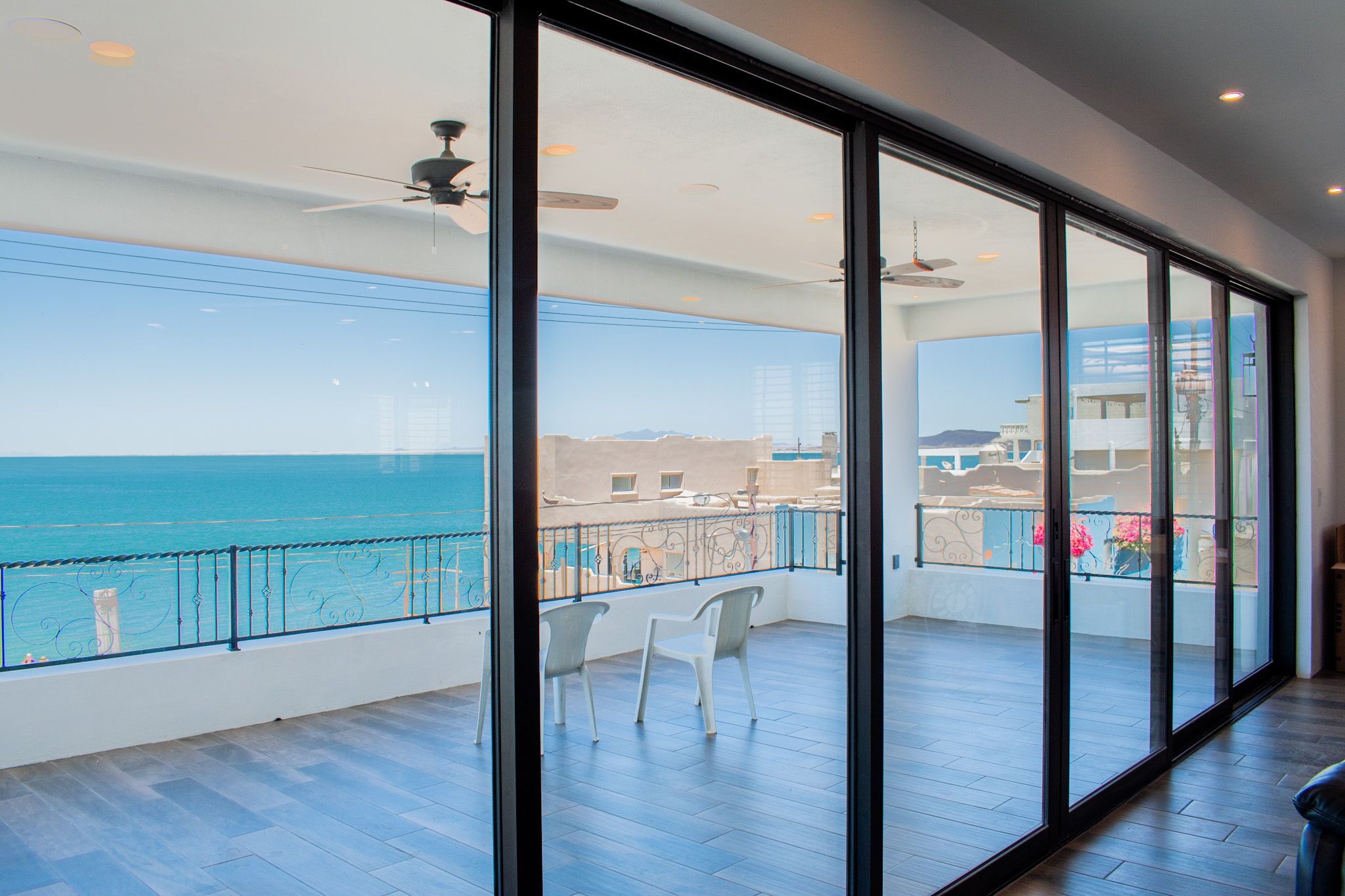Caroline Blazovsky, CEO of My Healthy Home, worries about anyone being stuck in an unhealthy environment. Lately, she’s been especially concerned about those having to isolate in rooms with small windows because of COVID-19.
“Being trapped in environments that are not aesthetically pleasing is not good for your mental health. Windows play such a key role in creating that healthy environment for us,” she says.
Blazovsky is familiar with the health benefits – physical and mental – of having large windows and sliding glass doors in homes. Her nationwide company, My Healthy Home, conducts indoor air and water testing, and she’s evaluated more than 30,000 houses over the past 20 years. “We take the glass we look out of for granted,” she says, “but how much more peace do you feel when you can look out and see nature and just feel more alive and connected with the world?”
Research increasingly shows the virtues provided by large glass doors and windows – natural light, ventilation, access to nature and the outdoors – have numerous health benefits. An Environmental Protection Agency report from 2018 stated that Americans spend an average of 90 percent of their time indoors. Now, as people’s homes also become their offices, schools, and recreation areas, having a healthful home environment is more important than ever.
Cleaner Air
You breathe in more than 2,000 gallons of air every day, according to the American Lung Association. That’s the equivalent of enough water to fill a small swimming pool. Exposure to air pollutants can have all sorts of adverse health effects, but there’s evidence that natural light and ventilation can literally help clear the air.
“Naturally ventilating a space through open windows can provide a positive human experience,” says Nathan Stodola, chief engineer for the International WELL Building Institute (IWBI), which focuses on ways buildings can enhance human health and wellness. “Studies have shown that naturally ventilated buildings have fewer people reporting sick symptoms than mechanically conditioned buildings.”
Natural light coming through glass doors and windows can also impact bacteria. “Studies tell us bacteria counts go down when we expose bacteria or microorganisms to natural light,” Blazovsky says. “We also know that if we open our windows and ventilate properly, we can reduce the amount of chemicals in the air and have better air quality.”
“Windows are important,” she continues. “If you have fresh air outside, that’s your first line of defense.”
Better Sleep
In a study by Northwestern Medicine and the University of Illinois at Urbana-Champaign, employees with windows in their workplace received more natural light and slept an average of 46 minutes more per night than employees who did not have natural light exposure in their workplaces. And better sleep means better health.
“Light is the main driver of the visual and circadian systems. Exposure to daylight has been proven to have a significant impact on mood, circadian health, and productivity,” Stodola says. “Studies have associated lack of exposure to daylight with a disruption in the circadian rhythm of humans and a decrease in the quality of sleep.”
Improved Mental Focus
Sally Augustin is an environmental psychologist and author of Place Advantage: Applied Psychology for Indoor Architecture. As principal at Design With Science, her consulting work focuses on incorporating important psychological considerations into the design of places. She says research only continues to grow about the positive impacts of natural light and well-ventilated spaces on our moods and mental performance.
Having a nice view also brings benefits. “Visual access to the outdoors is really important because it can help us reduce stress levels and mentally refresh after we’ve become cognitively exhausted doing knowledge work, particularly if you can see water or the natural landscape,” Augustin says.
For people working long hours in front of a computer or reading a lot, clean sightlines and uninterrupted views can give their eyes a much-needed physical reprieve. “Providing longer sight lines through windows can give your eyes an opportunity to relax if they can focus on a distance, especially if you’ve been doing lots of reading or other up-close visual type of work,” Augustin explains.
Reduced Stress
If you’ve been feeling cooped up lately, you’re not alone. A survey in April 2020 conducted by realtor.com and Toluna Insights showed the biggest complaint from the 1,300 homeowners surveyed about their homes during the coronavirus pandemic was “small spaces.”
Large sliding glass doors that merge indoor and outdoor areas create more space, helping to alleviate claustrophobia and cabin fever while inviting nature in. “Exposure to plants and other natural elements has been linked with decreased levels of diastolic blood pressure, depression and anxiety, increased attentional capacity, better recovery from job stress and illness, increased psychological well-being, and increased pain tolerance,” Stodola says.
Access to the outdoors is a big factor in an overall healthy building, Stodola adds. “Through incorporation of nature, the built environment serves as a powerful tool to help relieve stress and mental fatigue, support focus, and encourage overall mental well-being.”
Source: Western Window Systems



